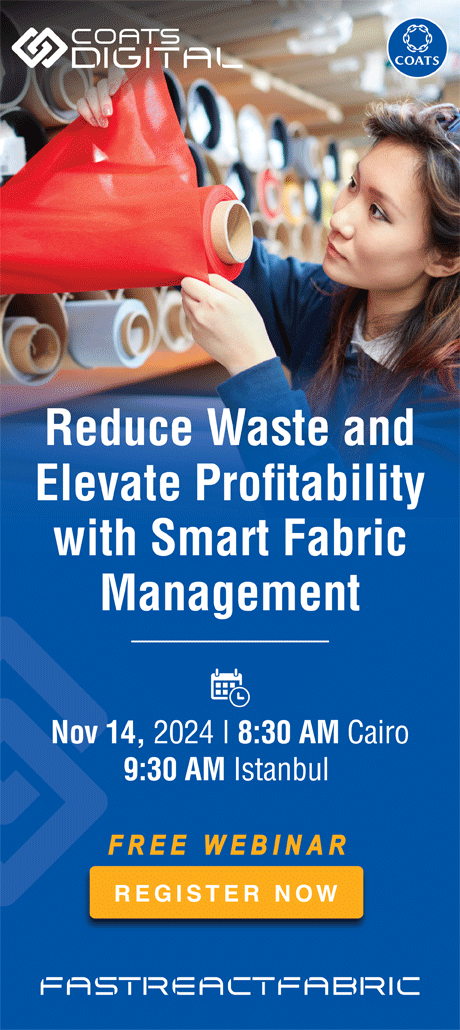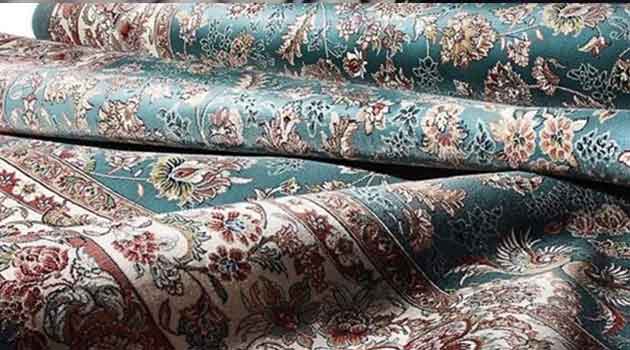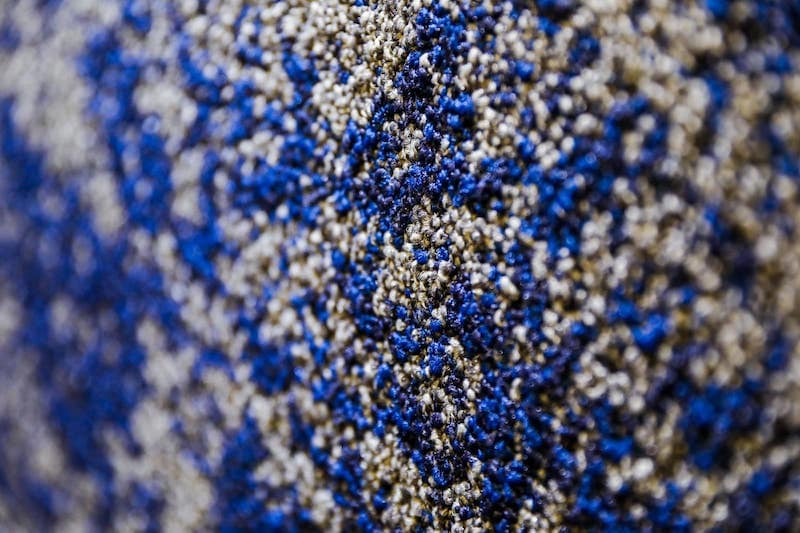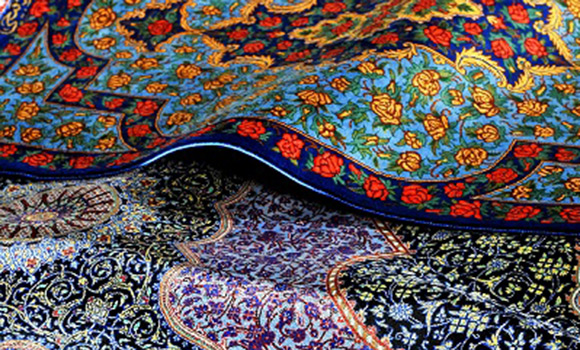Machine-Made Carpet Industry In Iran
Dr Mansour Diari – Member of the faculty of the university and head of the Machine Carpet Innovation House
The machine-made carpet industry, with more than 1,000 production units, is one of the few industries in Iran that has not only been able to equip itself with the latest technologies in the industry over the past 10 years but has also experienced growing currency and exports.
One of the most important reasons for the relative success of this industry compared to many other industries in the country is its 100% privacy and the efforts of the owners of this industry around the clock and the hard work of its managers. One of the hallmarks of these managers is the flexibility, adaptability and adaptability of the business enterprise to the conditions ahead under any circumstances and finding solutions to the problems arising from the changes in the surrounding environment.
Today’s changes in the world, especially in the economy, have become so rapid that we can boldly say that the world’s strongest economic analysts and leading economists are cautious about predicting the future of the economy and the effects of sudden changes on businesses.
In just a few weeks, global oil prices will fall from $ 60 to $ 28 a barrel, causing an incredible shock to the world economy, especially the global oil industry. At the same time, a virus called Covid-19 first invades China and then the rest of the world, especially major economies such as the United States, imprisoning more than half of the world’s population and quarantining the world’s major cities.
Indicators are experiencing an unprecedented decline in the world’s largest stock exchanges, and planes are crashing around the world. It’s hard to believe that the world economy, with all its tumult and turmoil, will sink into such a deadly recession in just a few weeks that it is expected to experience one of the worst recessions in human history. But this is a fact!

Now the question arises for entrepreneurs, managers and artisans of machine-made carpets, what is the future of the Iranian machine-made carpet industry after passing this historical turn, and what is waiting for this industry behind this turn? And more importantly, what should be the response and performance of this industry in the post-Corona era, especially in 1399?
Although it is very difficult to predict the situation for the Iranian machine-made carpet industry under the complex conditions of the world and especially in Iran, it seems that some consequences can be predicted to some extent and based on it, the solutions will be sought. He stepped out of the crisis ahead.
This is in line with the spirit of flexibility and adaptability of the managers of the machine-made carpet industry, and it is expected that the managers of this industry will make difficult and vital decisions and apply the necessary changes in their business, which is otherwise required. Or they will inadvertently leave the competition.
Looking at the state of the world economy on the one hand and the prevailing conditions in the economy and the domestic business environment, it can be seen that the conditions facing the Iranian machine-made carpet industry in 1399 will be very complex and a mixture of several strong and highly influential factors.
Perhaps the most important factors influencing Iran’s machine-made carpet industry in the short term (the next one to two years) include five factors: oil prices, coronavirus, exchange rates, sanctions and domestic purchasing power, each of which will be discussed below.
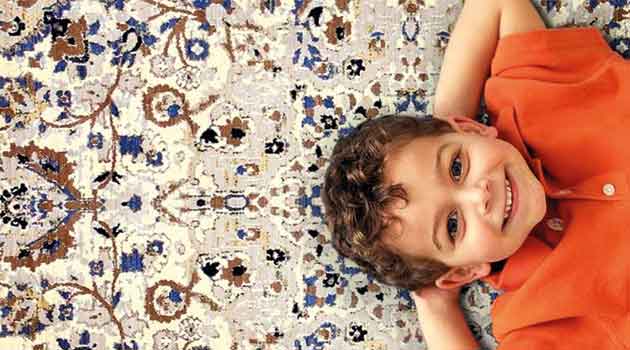
A. Oil prices
Oil may be the world’s most important commodity in the last hundred years, so that any tradition of raising or lowering its price can have a profound effect on markets, the global economy, and any of the world’s businesses. Now, if these changes in oil prices are severe and reach several tens of dollars, there will be terrible shocks to the global economy, one of which has occurred not in a few years and months, but in recent weeks.
Global oil prices have fallen below $ 60 a barrel and below $ 28 a barrel, less than half. Although the world’s two largest economic entities, OPEC Plus and Group 20, agreed in a deadline to set a historic record of more than 10 million barrels in crude oil production and supply, the global market’s response showed that it was not.
It can help a lot to increase oil prices. So it seems that if oil prices are around $ 30 or lower in the coming year, we will have to wait for a sharp drop in global fibre prices such as acrylic, polyester and polypropylene (BCF) fibres, as well as other textile raw materials such as granules. It was Masterbatch and so on.
However, this price reduction in Iran may be 10 to 15% lower than the global price reduction due to the forthcoming sanctions. Another scenario or counterpoint to these changes could be a gradual rise in oil prices and a return to previous rates (above $ 60), in which case the price of textile raw materials will not fall sharply.
Of course, given the dark conditions facing the global economy and the sharp decline in demand due to the recession and the closure of businesses due to the spread of the coronavirus, such a prediction does not seem to be very close to reality for at least the next year. Therefore, it can be said that the artisans of the machine-made carpet industry should probably wait for the reduction of global fiber prices and, consequently, the types of yarns used in machine-made carpets in the near future.
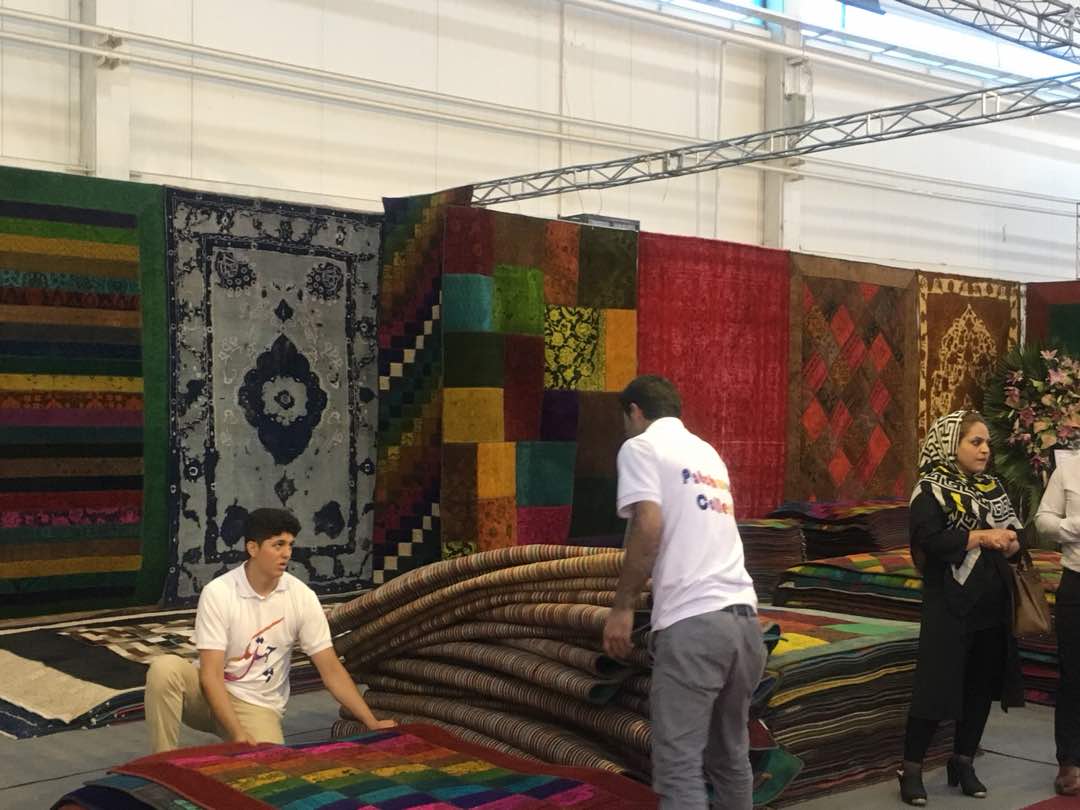
B. Coronavirus
Since the advent of the Covid-19 virus in Wuhan, China, even the most pessimistic economists in the world have not predicted such a recession that ruled the world in just three months. No one could believe that the world economy would flourish with a daily turnover of several thousand billion dollars. Regardless of whether the spread of the virus is a biological war between the world’s economic superpowers or a natural spread of the virus worldwide, one thing that should be of great importance to artisans is that the conditions of the world after spreading of the virus are undoubted.
It will be called the post-Cracona era, it will be very different. Many economists believe that the world must cope with the virus and the new conditions that have ruled businesses. This means that Iran’s machine-made carpet industry craftsman will soon have to say goodbye to his business if he does not take the consequences of the Coronavirus on the domestic and foreign economies seriously and does not take smart measures.
Especially when he knows the general principle that in Iran, governments (regardless of their political orientation) are usually not very concerned about solving the problems of industry in specific and critical economic conditions or, in some cases, are not able to take specific and helpful measures. So Iran’s machine-made carpet artisans need to know that, as in the last three decades, they have to roll up their sleeves and look for safe or low-risk crossings. This is a very serious and crucial issue.
C. Sanctions
Iran’s machine-made carpet industry is facing another major problem in the currently very complex situation, along with the recession in the world and severe economic turmoil.
The US’s unilateral and unilateral sanctions on Iran’s textile industry, for the first time in the history of the two countries’ disputes. In a statement issued in December 2017, the US Treasury Department, in line with its government’s maximum pressure policy, boycotted other sectors of Iran’s industry and economy, one of which was the textile industry.
Although a three-month exemption was granted from the outset to settle foreign companies’ accounts and cut ties with Iran, the exemption passed quickly, and many reputable banks around the world, even the Chinese consulate, have been forced to comply with sanctions. They have announced the cessation of cooperation. Although the textile industry boycott has occurred for the first time, nothing new seems to have happened.
When the banking system, Swift and international financial exchanges are sanctioned for a country, there is not much difference in the type of industry or exchange goods. Therefore, it seems that under the new sanctions, access to raw materials and spare parts and accessories will be more limited and more difficult, and of course, there will be additional costs, which will naturally increase the price of fiber and raw materials by about 10 to 15 %.
Given the impact of falling global oil prices on textile raw materials on the one hand and the impact of sanctions on rising fiber prices and raw materials on the other, the scales seem to be heavier unless global oil prices fall to three-month prices. Come back before. Which is not very close to reality.
D. Currency rate
Rising foreign exchange prices in Iran have become a common phenomenon in Iran’s economy. The only point in this regard is that the increase in the price of the currency, or in other words the devaluation of the rial against other currencies, especially the dollar, every 4 or 5 years for economic and political reasons experiences a jump of several hundred percent and again with a slope and Gently continues to increase.
The rise in the price of the currency at the beginning of 1399 in the context of the semi-closed economy caused by Corona and the low demand in the society shows that the dollar has started its creeping move towards higher prices.
Although it is not easy to predict the situation ahead and other variables such as the different results of the US election can upset the equations and therefore the predictions, but with the resumption of business and the general increase in demand at the community level on the one hand, foreign travel The need to supply raw materials for industrial plants and, most importantly, a sharp decline in government oil revenues and, consequently, a decrease in foreign exchange inflows into the country, it seems that the exchange rate, especially the dollar, not only does not decrease but continues to increase.
Therefore, Iran’s machine-made carpet artisans, especially those factories that need raw materials and foreign parts more than others, should not ignore this issue. Of course, this is one side of the coin, and the other side is the boom in exports and the increasing competitiveness of Iranian machine-made carpets in world markets.
It is obvious that the activists of the machine-made carpet industry are not able to reduce the price of the currency, so they should try to increase their exports as much as possible. This is not an easy task in the face of sanctions and the recession in global markets and the consequent global decline in people’s purchasing power in export target countries, but the reality is that there is currently no choice but to take steps in this direction for Iranian machine-made carpet companies. is not.
E- Customer’s purchasing power
Another factor that could have a severe impact on the car carpet business in 1399 is the decrease in the purchasing power of the people of the country. Inside the country, several factors have come together to significantly reduce people’s purchasing power next year.
The closure of Eid and Bahareh night markets in many businesses due to the Coronavirus and the consequent decrease in the income of a large segment of the country’s population, the increase in the exchange rate and the resulting devaluation of the rial, unbridled inflation and, in a word, stagflation that many economists for 1399 Iran predict a sharp decline in people’s purchasing power.
Therefore, it seems that next year, the companies that produce machine-made carpets, which will be able to stimulate the demand for their manufactured goods by applying long-term and instalment sales conditions for their customers, will be more successful. Naturally, this requires high financial backing, but even bank facilities (and therefore bank interest payments) and long-term financing seem to be better than not selling and then moving the wheels of production.
In other words, in the forthcoming conditions, the first principle for each of the production units in the machine-made carpet industry should be to maintain the current situation and turn the wheels of production, and the second principle is profit!
Although the economic conditions and purchasing power of the people, especially in the first half of 1399, are not favourable, but machine carpet companies should not ignore the accumulated demand at the end of 1398. In fact, part of the demand for buying machine-made carpets at the end of 1398 has not been well answered and this part will be added to the demand for the end of 1399.
This means that those machine-made carpet companies that can manage their first 8 months of 1399 and have a written plan for the last 4 months of their year will be able to do all or part of the losses caused by the Crown recession in the business. Make up for it yourself.
By summarizing the set of obvious and hidden factors affecting the business environment of Iranian machine-made carpets in 1399, some of which were mentioned, the following recommendations can be given to entrepreneurs and intelligent managers and hard workers of the machine-made carpet industry:
– Failure to enter into new non-productive investments, such as diverting part of the seemingly surplus capital of industrial owners to unproductive activities such as land, real estate and independence.
– Efforts to provide as much capital as possible in turnover as financial backing and sales of instalments and instalments (to stimulate demand, in the end, consumer and thus maintain or increase the company’s sales level)
– Daily monitoring of the impact of Corona on the economy of Iran and the world, as well as the continuous evaluation of global trends for faster decision making and the necessary changes in the business environment of the enterprise under control.
– Getting help from cheap state resources for Corona, even help that is not seemingly significant.
– Paying special attention to exports as a very important principle in the shadow of the devaluation of the rial, which causes the dollar price of Iranian machine-made carpets in world markets to be lower than competitors of value and stubbornness such as Turkey.
– Pay special attention to innovation and creativity in various sectors of production and supply of machine-made carpets in order to increase the added value of production.
– Increasing the level of unity and solidarity within the union and mutual support of different sectors of industry and the machine-made carpet market, including spinning, weaving, finishing, related industries, exhibitions and stores offering machine-made carpets, especially high-performance ones.
– Careful planning to make the most of the domestic market share of machine-made carpets at the end of 1399

Concluding remarks:
Managers and owners of the machine-made carpet industry and related industries should not forget the principle that neither the government nor any other person will be able to do so after the excitement of the Coronavirus spread and amid the difficult economic conditions of the coming year.
They must manage their business and economic situation on their own, or at least in partnership with other companies in their class.
Therefore, it is strongly recommended that they make the most of the experiences, strategies, and scientific and experimental consultations of others, and make appropriate and timely decisions in accordance with the specific circumstances of their enterprise. Undoubtedly, within the next year, a number of companies that have delayed or are waiting for a miracle and their managers will manage their collections in a management style “from this column to that column”, will be removed from the competition course and the business scene of Iranian machine-made carpets.
Let’s not forget that the position of each of the machine-made carpet companies in the next year at the same time is the result of the choices of its managers in these moments. Let’s understand the moments when negligence causes regret!
See more Carpet and Flooring News …


